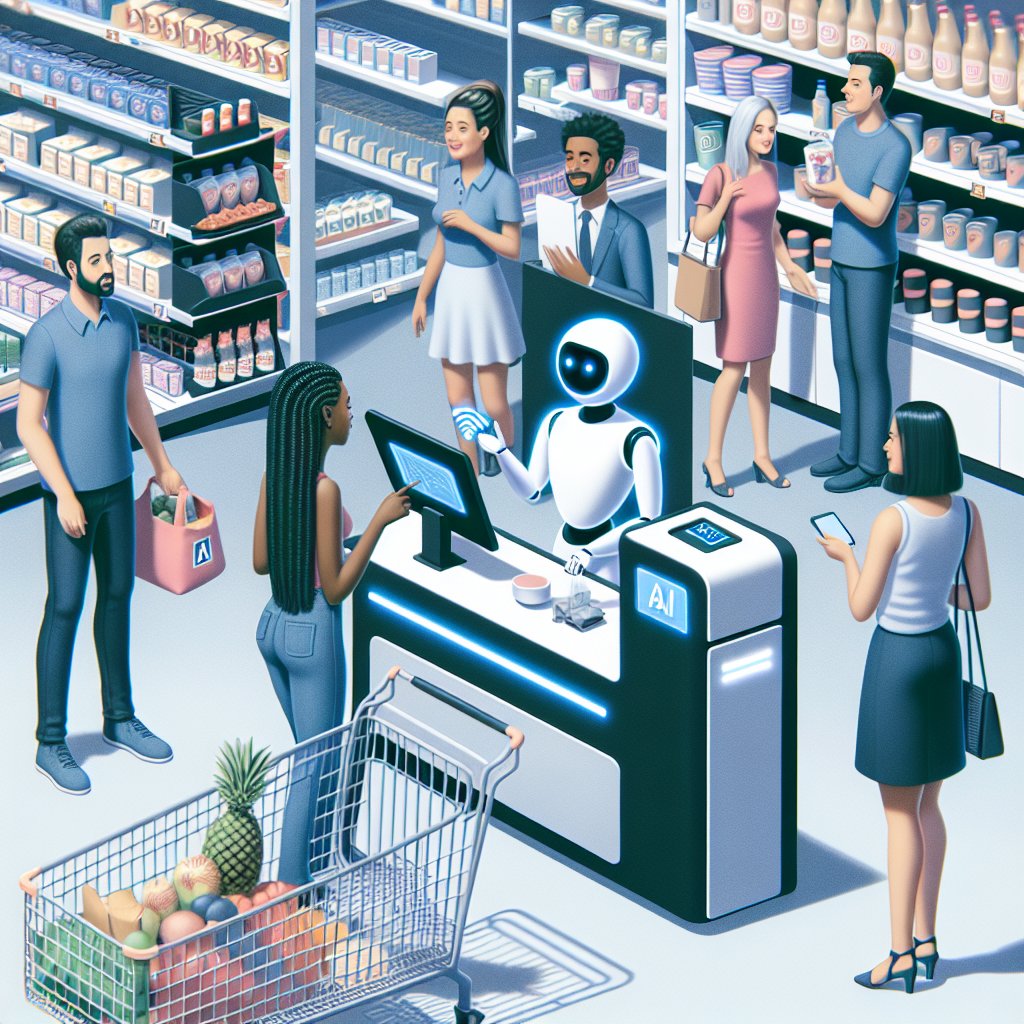The advent of artificial intelligence (AI) has sparked widespread speculation about the future of various professions, with cashiers being a prime subject of this discourse. As the retail landscape evolves, many wonder how technology will reshape the checkout experience. As we witness the emergence of self-checkout kiosks and automated payment systems, exploring the future of cashiers with AI becomes a crucial inquiry for both the workforce and consumers alike.
Use of AI for Cashiers
The integration of Artificial Intelligence (AI) into the retail sector has revolutionized the role of cashiers, making transactions faster and more efficient. AI systems in checkout lanes are enhancing the customer experience by reducing waiting times and streamlining payment processes. Smart algorithms power self-checkout systems and even fully automated stores, where AI tracks purchases and charges customers without the need for traditional cashier interactions. The deployment of AI doesn’t just improve speed; it also provides valuable insights into consumer behavior, allowing businesses to tailor their services and inventory based on data-driven analysis.
Beyond mere transaction processing, Artificial Intelligence allows for a highly personalized shopping experience, with AI-powered cashiers offering product recommendations and loyalty rewards to customers on the spot. As AI technology becomes increasingly sophisticated, it opens the door to contactless transactions through facial recognition or mobile payment integrations, ensuring a seamless and secure checkout process. These intelligent systems are not only transforming the role of cashiers but are also reshaping the retail landscape, making the use of AI for cashiers a critical development in the evolution of modern commerce.
The Potential for AI to Replace Cashiers
The retail landscape is on the verge of a seismic shift as Artificial Intelligence (AI) continues to evolve, posing the question of whether AI could potentially replace human cashiers. AI technologies, such as self-checkout kiosks and automated payment systems, are already altering the way customers interact with stores. With advancements in machine learning, speech recognition, and computer vision, AI is becoming adept at tasks traditionally handled by cashiers, such as scanning items, processing transactions, and even managing inventory. As businesses strive for efficiency and cost-effectiveness, the use of AI in retail environments is a hot topic for both industry experts and the workforce.
The implications of AI for cashiers reach far beyond the checkout lane. Enhanced AI systems promise to streamline the shopping experience, reduce wait times, and optimize staffing requirements, which could translate into significant savings for retailers. Meanwhile, the debate intensifies around job displacement versus job transformation, as AI stands to redefine roles within the retail sector. The potential for AI to replace cashiers isn’t just about technological capability; it also hinges on customer acceptance and the readiness of the retail industry to embrace a new paradigm of service.
Enhancing Customer Experience with AI in Retail
AI is revolutionizing this sector by personalizing shopping experiences, streamlining operations, and engaging customers like never before. AI-powered tools and solutions are enabling retailers to predict consumer behavior, make tailored recommendations, and improve inventory management, thus significantly enhancing the overall shopping journey. From chatbots that provide instant customer service to AI-driven analytics that help understand shopping patterns, technology is at the forefront of creating a seamless and satisfying experience for customers.
The integration of AI in retail is not just about behind-the-scenes analytics; it’s also transforming the in-store environment. Smart mirrors, virtual fitting rooms, and AI-assisted checkouts are redefining the meaning of convenience and customization in physical stores. Online, AI enhances customer experience by providing a frictionless shopping ecosystem that actively learns from each interaction to deliver a truly personalized service. As a result, businesses are not only seeing increased customer satisfaction but also a boost in sales and repeat business, proving that the investment in AI technology is indeed a strategic move for retailers aiming to thrive in the competitive market landscape.
The Impact of AI on Employment Opportunities for Cashiers
The advent of artificial intelligence (AI) is revolutionizing the landscape of numerous industries, and the retail sector is no exception. As AI technology continues to advance, it’s redefining the role of cashiers and reshaping employment opportunities within this profession. The integration of AI-driven systems like self-checkout kiosks and automated payment applications is a game-changer, potentially increasing efficiency and customer service speeds. This evolution is compelling cashiers and retail managers to adapt to a changing environment where technology complements traditional job functions.
Despite concerns over job displacement, the impact of AI on cashier employment opportunities may also open the door for new skills development and career paths. As AI handles routine transactions, cashiers have the potential to shift towards more customer-centric roles, focusing on enhancing the shopping experience and providing personalized assistance. This shift places a premium on human skills such as empathy and problem-solving, which AI cannot replicate. Consequently, the emergence of AI in the retail sector is double-edged, signaling a transformative period where the nature of work for cashiers will evolve rather than simply diminish.
The Role of Human-Cashier Interaction in the Age of AI
The retail world is evolving quickly as artificial intelligence (AI) begins to permeate the market, potentially transforming the traditional human-cashier relationship. This shift raises important questions about the balance between technology and human touch in the customer checkout experience. While AI offers speed, efficiency, and the potential to reduce operational costs, the role of human cashiers can significantly impact customer service and satisfaction. Human cashiers not only process transactions but also provide a personal touch that AI technology cannot replicate, from greeting customers to handling complex transactions and providing immediate, empathetic problem resolution.







